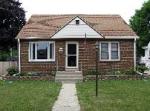Not disclosing any of the details before hand, the reverse mortgage amendment was added to bill SF2430/HF2699. Being passed in Congress we now hope to receive a veto from Governor Pawlenty to protect Minnesota Seniors and the reverse mortgage businesses.
I along with others have concerns about the bill:
- This bill has not been transparent. While I have been inquiring and searching for information for months, I did not learn the bill number or the details of the bill until the evening of May 14th – just before the May 17th end of the 2010 legislation session.
- This reverse mortgage legislation is controversial. Any reverse mortgage legislation should not happen without a full hearing. And without all of us impacted, especially brokers and lenders who are not federal chartered banks having an opportunity to see and address any proposed legislation.
- This law would mean increased costs to reverse mortgage borrowers and/or cause some lenders to refrain from offering reverse mortgages in Minnesota. As with the 2009 SF489/HF528 bill which Governor Pawlenty vetoed last year this bill still contains some of the same language and would have the same impact.
- Reverse Mortgage Borrowers are highly protected – why confuse the issue with state laws. Currently the only reverse mortgages available in Minnesota are the FHA insured Home Equity Conversion Mortgages or HECMs and these are highly protected and regulated by HUD. Visit my blog, “You Need To Know Reverse Mortgage Borrowers Are Highly Protected!” for details.
- There are so many changes on the Federal level it would be a disservice to Minnesota seniors to implement state laws. The state would have to oversee any differences from federal regulations.
- This law would be additional costs to the state. While the bill may not be showing as a having a budget expenditure, there would be additional costs to the state in overseeing that state laws are followed versus the difference of the federal regulations. More seniors are likely to lose their homes without the reverse mortgage option. Consequently the foreclosures would increase and more housing would be needed for seniors and much of this would be born as state expense.
- All lenders do not have to abide by the state rules. Federal chartered banks do not have to abide by the state rules because they are federal chartered yet brokers and non-federal chartered banks and lenders would have to follow any state laws. As I sated in my blog, “Do You Know The Best Kept Reverse Mortgage Secret in Minnesota?,” this would be amonopolistic-like advantage for the FDIC banks over other lenders. This obviously does not foster fair competition between all lenders and small business.
If Govenor Pawlenty signs the SF2430/HF2699 bill into law there will be negative consequences to our Minnesota seniors as well as reverse mortgage brokers and lenders in Minnesota.
While some are claiming the changes made from the 2009 bill now has widespread support, those of us in the reverse mortgage industry have not had an opportunity to review or address this legislation – we are NOT supporting it. Sneaking this legislation on at the last minute when it has not been transpartnet and is so controversial seems to me does not fit into the democratic consitution of our country or state.
I have asked that Governor Pawlenty veto the bill so we in the industry, who are senior advocates and would be directly impacted by the law chances, have the opportunity to review and address as well as write proposed legislation that will be in favor of protecting seniors as well as the reverse mortgage businesses.
Please join me in requesting Governor Pawlenty veto SF2430/HF2699 by sending him an email at tim.pawlenty@state.mn.us. Use my above outlined issues as reasons for your request for a veto.
Thank you for your assistance in protecting Minnesota seniors as well as revesre mortgage borrowers.
© 2010 Beth Paterson, Beth’s Reverse Mortgage Blog, 651-762-9648
This material may be re-posted provided it is re-posted in its entirety without modifications and includes the contact information, copyright information and the following link: http://wp.me/p4EUZQ-jJ
Related articles:
- Do You Know The Best Kept Reverse Mortgage Secret in Minnesota?
- AARP Has It Wrong About Reverse Mortgages
- You Need To Know Reverse Mortgage Borrowers Are Highly Protected
- Irrational Statements Show Ignorance of Reverse Mortgages
- It Is Not Reverse Mortgage Fraud When…
- The Media Needs The Reverse Mortgage Facts
- But Wait, There’s More… Reverse Mortgage Facts The Media Needs To Know
- To Protect Minnesota Seniors Governor Pawlenty Needs To Veto The Reverse Mortgage Legislation – A Letter To the Governor (2009)
- Protecting Seniors, Governor Pawlenty Vetoed Reverse Mortgage Bill
Blog posts’ information is current as of date post published, program is subject to change in in the future. Contact us for current information, 651-762-9648.
This site or the information provided is not from, or approved by, HUD, FHA, or any US Government or Agency.



















